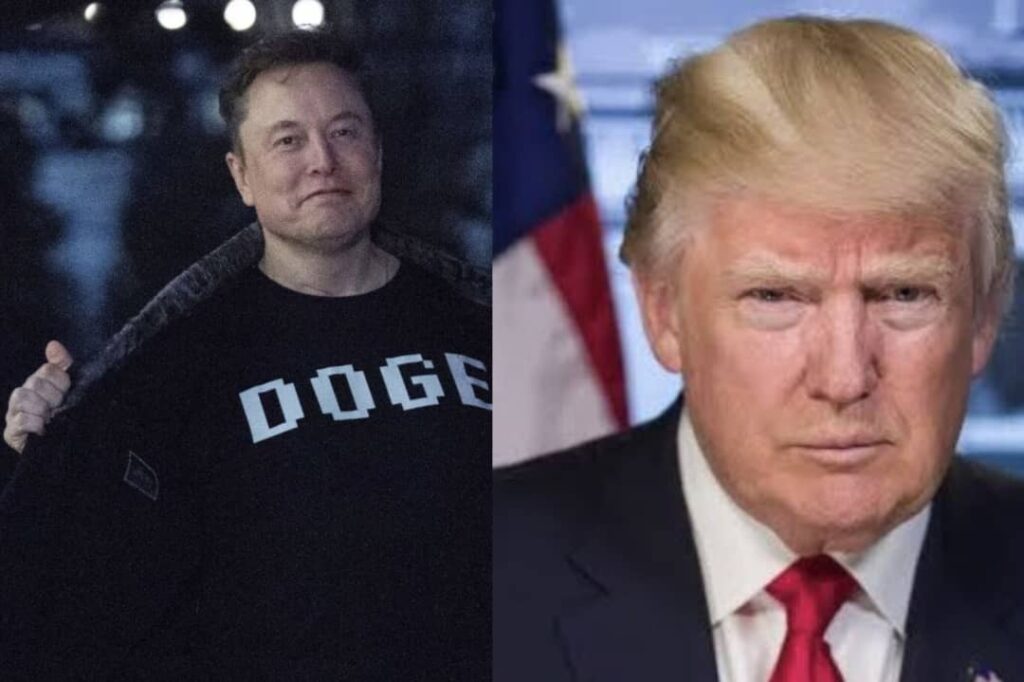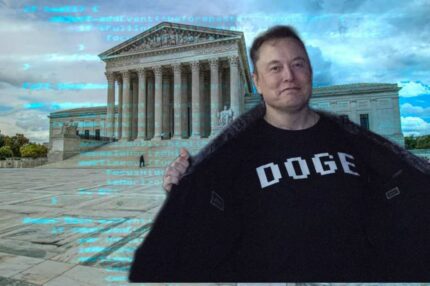The Trump administration on Friday filed an emergency appeal with the U.S. Supreme Court seeking to lift a lower court injunction that currently blocks the Department of Government Efficiency (DOGE) from accessing sensitive data held by the Social Security Administration (SSA). The appeal stems from a ruling by U.S. District Judge Ellen Hollander in Maryland, who concluded that the SSA’s decision to grant DOGE access to personally identifiable information likely violated the Privacy Act and administrative procedures required by federal law.
In a comprehensive 145-page ruling issued in April, Judge Hollander emphasized that the legal challenge was not about DOGE’s modernization mission itself, but about the means through which it sought to achieve that goal. “The issue here is not the work that DOGE or the agency want to do. The issue is about how they want to do the work,” she wrote, warning that the SSA’s compliance with DOGE’s request represented a significant breach in a decades-old foundation of data privacy.
Though the ruling permits limited access to redacted or anonymized information—conditional upon background checks and mandatory training—it blocks DOGE staff from directly accessing full personal records of millions of Americans. The full U.S. Court of Appeals for the 4th Circuit declined to suspend that injunction, prompting the Trump administration to escalate the matter to the Supreme Court.
Solicitor General: Injunction Disrupts “Urgent Federal Priorities”
Solicitor General D. John Sauer, representing the administration, argued in the Supreme Court filing that the lower court’s decision is hampering the executive branch’s ability to modernize outdated systems and eliminate government inefficiencies. He contended that restricting DOGE’s access undermines its statutory mandate and places undue limitations on the government’s capacity to curb fraud and waste.
“The government cannot eliminate waste and fraud if district courts bar the very agency personnel with expertise and the designated mission of curtailing such waste and fraud from performing their jobs,” Sauer stated. He also challenged the legal standing of the plaintiffs—two labor unions and an advocacy group—saying they lacked the authority to sue.
Furthermore, Sauer criticized the breadth of the district court’s order, calling it “sweeping relief” that “harms urgent federal priorities” and compromises executive functions. He likened DOGE’s treatment by the judiciary to being viewed as “intruders who break into hotel rooms,” stressing that the team should instead be seen as essential government reformers.
DOGE’s Role Under Musk and Ongoing Legal Controversies

The Department of Government Efficiency was created by President Trump through an executive order on his first day back in office, with Tesla and SpaceX CEO Elon Musk designated to spearhead the initiative. Although Amy Gleason, a veteran of the U.S. Digital Service, is officially listed as DOGE’s administrator, Musk’s high-profile role has drawn intense scrutiny and triggered a wave of legal battles.
DOGE has already faced several lawsuits over its attempts to access sensitive databases across multiple federal agencies, including the Departments of Treasury and Education, as well as the Office of Personnel Management. In each case, plaintiffs have claimed DOGE failed to comply with privacy regulations enshrined in the Privacy Act of 1974.
Critics have also raised constitutional concerns, particularly regarding Musk’s influence. In March, a separate federal judge ruled that DOGE’s unilateral shutdown of the U.S. Agency for International Development (USAID) likely violated the Appointments Clause of the Constitution. That ruling is currently on hold pending appeal by the Trump administration in the 4th Circuit.
Privacy Advocates Warn of Unprecedented Data Access
The legal fight has alarmed privacy advocates and watchdog organizations, who warn that granting DOGE access to SSA records could erode Americans’ trust in federal data custodianship. For nearly a century, the SSA has operated under the principle of safeguarding the privacy of its beneficiaries, and critics argue that DOGE’s aggressive data access initiatives threaten that legacy.
“Millions of Americans entrust their most sensitive information to the Social Security Administration,” said Anne Chambers, a policy director at Democracy Forward, which is representing the plaintiffs. “What DOGE is attempting to do, without sufficient oversight or rulemaking, could set a dangerous precedent for future administrations.”
Chambers added that the lawsuit was not a challenge to government modernization but a defense of due process and the rule of law. “If government reform is done without public accountability or adherence to privacy safeguards, it ceases to be reform—it becomes overreach,” she said.
Supreme Court’s Decision Could Set Far-Reaching Precedent
Legal analysts believe the Supreme Court’s eventual decision could have sweeping implications for data governance, executive power, and the scope of privacy protections in the digital age. If the justices agree to lift the injunction, DOGE would gain rapid access to millions of confidential records, potentially accelerating its modernization agenda but also inviting deeper constitutional scrutiny.
On the other hand, if the Court upholds the lower court’s decision, it would mark a significant check on the Trump administration’s efforts to centralize authority over federal data systems. Such a ruling could also embolden other challenges to executive initiatives that bypass established administrative procedures.
With the high court already inundated with cases arising from more than 200 legal challenges to the Trump administration’s second-term policies, the DOGE-SSA dispute is the first to directly test the limits of the president’s government efficiency agenda. A ruling is expected in the coming weeks as the justices weigh the constitutional, statutory, and ethical dimensions of this unprecedented case.














